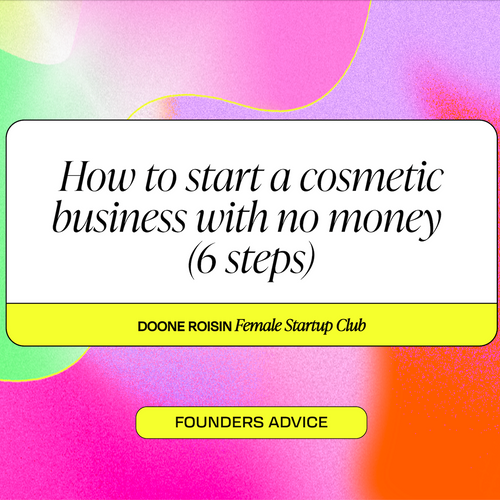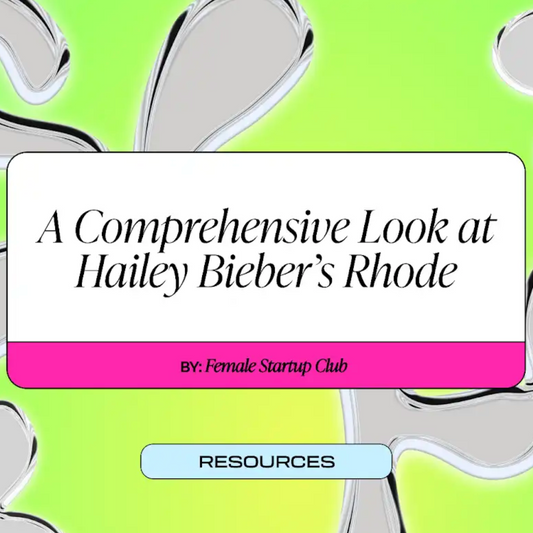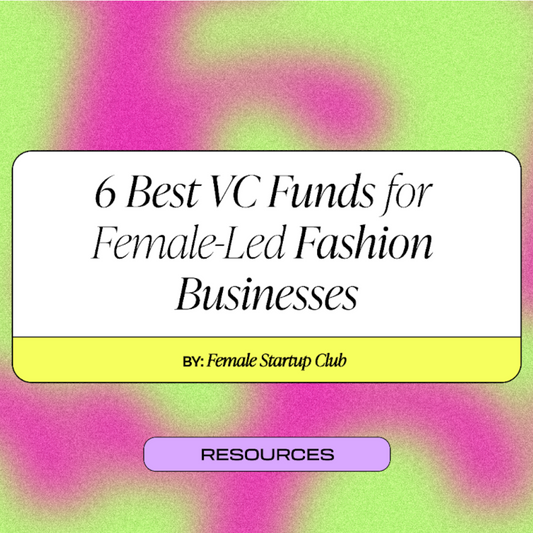Joining me on the show today is Jamika Martin, Founder of Rosen Skincare.
Named a World Changing Idea by Fast Company, Renewal Mill is an award-winning, next-generation ingredient company that fights climate change and global food loss by up-cycling byproducts from food manufacturing into premium ingredients and products.
In this episode you’ll learn how Caroline’s been driving growth through LinkedIn as her primary channel, innovative ways to get startup capital and specific slack channels anyone in the food industry should join.

Meet Jamika and Rosen Skincare
Jamika founded Rosen with a mission: to create the next generation of acne care that speaks to Gen Z and millennials. With fresh branding, relatable language, and smart pricing, Rosen is transforming what the acne aisle looks like, making it a cleaner and more enjoyable shopping experience.
But Jamika didn’t just wake up one day with this amazing idea. She faced her own struggles with acne and saw the same old brands cluttering the shelves year after year. This frustration sparked a lightbulb moment back in 2016, during her second year of college, leading her to launch Rosen in 2017. She had the consumer experience but had to learn the ropes of formulation and production on the go.
Marketing from the Start
From the get-go, Jamika knew marketing was crucial. She started focusing on where her customers were coming from and aimed to replicate that success. Partnering with a mentor and a consultant made a huge difference in her journey. This collaboration helped her clarify Rosen’s brand identity, making it easier to communicate with customers and tweak her marketing strategies.
Jamika’s marketing tactics included leveraging social media, particularly Instagram and YouTube, gifting influencers, and running creative giveaways. She emphasized building partnerships with brands that were a bit bigger than hers to amplify reach and engagement.
The Importance of Consistency
Jamika notes that Rosen’s growth has been consistent but gradual. There wasn't a single magic moment that skyrocketed sales; instead, it’s been a series of incremental successes. She encourages embracing the plateaus and focusing on continuous improvement.
She advises against spreading yourself too thin across platforms. Instead, she suggests committing fully to one channel at a time to really understand and test what works best for your brand.
Understanding Cash Flow
As Rosen grew, Jamika recognized the importance of cash flow. Even when scaling up and generating more revenue, she found that understanding the cash flow was crucial to avoid financial strain. It’s essential to plan at least three months ahead and ensure you’re not scaling too quickly without grasping your financial health.
Her background taught her to be scrappy, so she didn’t have the luxury of testing and failing without consequences. This experience has positioned her well for future fundraising opportunities, allowing her to maintain a good valuation for Rosen.
Pricing Your Products Right
When it comes to pricing beauty products, Jamika emphasizes the importance of understanding all the costs involved. She aims for a 70-75% margin on her products, knowing that retailers often take up to 50%. Understanding the costs associated with ingredients, packaging, and labor is crucial to ensure healthy margins for both wholesale and direct-to-consumer sales.
Jamika encourages new brands to look at their competitors’ pricing and positioning. Decide whether you want to be perceived as luxurious or mass-market and adjust your pricing accordingly. If you're aiming for a low price point, keep in mind that simpler formulas and packaging are typically involved.
Building a Strong Omnichannel Brand
One of the biggest takeaways from Jamika’s journey is the need for clear differentiation. If you have a novel idea, make sure to communicate what sets you apart from the competition. Focus on understanding where your growth is coming from and actively seek feedback to improve.
Being too broad in your focus can lead to busy work without meaningful progress. So, hone in on your strengths, learn from your customers, and continue evolving your brand.
Final Thoughts
Jamika’s story is a testament to the power of persistence and clarity in the beauty industry. By understanding the nuances of marketing, cash flow, and pricing, she’s built a brand that resonates with her audience. Whether you’re an aspiring entrepreneur or just looking to learn more about the beauty industry, there are plenty of insights to take away from Jamika’s journey with Rosen Skincare.



